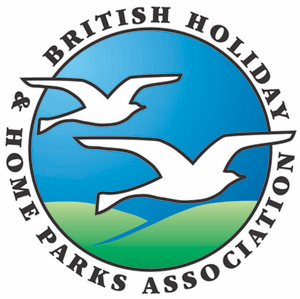Six of the best for Cumbria holiday parks dubbed green pioneers

Six holiday parks owned by Cumbria’s Holgates Group have now become Britain’s cheerleaders for green tourism, according to international botanist David Bellamy.
He made his comments after the announcement this October that all of the parks had won the 2018 David Bellamy Conservation Award at its top gold level.
The accolades are made annually following an independent audit of park business and their policies for protecting wildlife and safeguarding the natural world.
Professor Bellamy said that the group, including its flagship Silverdale park, were worthy winners of the top honour thanks to their raft of “amazing and imaginative” achievements.

The parks also received two extra commendations in the 2018 awards for their successful efforts to protect honey bees, and their creation of many new wild flower habitats.
Michael Holgate, whose family business has been based in south Cumbria for over 60 years, said that it was members of his park team who deserved the biggest place in the spotlight:
Wildlife and nature get the same VIP treatment as our guests
“Everyone here knows that our policy is to give wildlife and nature the same VIP treatment as our guests, and are encouraged to come up with fresh ideas to make this happen,” he said.
“Not only do they provide a lot of the inspiration, but are also keen to roll up their sleeves and get stuck into what’s needed to put the ideas into action.
“This corner of Cumbria has a very special character, and we’ve always been careful to try and ensure that our parks are a match to the beautiful natural surroundings,” added Michael.
Green initiatives for this holiday park
Among the recent green initiatives praised by David Bellamy has been the planting of over eight miles of new hedgerows as a “wildlife corridor” to help sustain wildlife.
And earlier this year, the park completed a massive planting project of native species such as oak and yew which saw around half-a-million years of tree life take root.
David Bellamy also highlighted the sowing of large areas of high nectar-bearing wild flowers which provide vital foraging for endangered honey bees, butterflies and other pollinators.
The holiday parks work closely with a wide range of bodies such as the RSPB and red squirrel groups, and employ traditional countryside skills such as hedge laying, coppicing and dry stone walling.
Other measures include the harvesting of rainwater for irrigation, and the siting of many bat, owl and bird boxes – as well as “bug hotels” – around the grounds.
Professor Bellamy also praised the close links the parks enjoys with local schools and other community bodies, and the emphasis put on locally sourced food in its shops and restaurants.
There is more information about the Holgates group and its parks at www.holgates.co.uk


